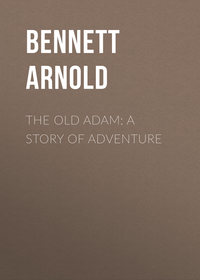Faqat Litresda o'qing
Kitobni fayl sifatida yuklab bo'lmaydi, lekin bizning ilovamizda yoki veb-saytda onlayn o'qilishi mumkin.
Kitobni o'qish: «The Old Adam: A Story of Adventure»
Biror narsa noto‘g‘ri ketdi, keyinroq qayta urinib ko‘ring
5,0
1 ta baho
Janrlar va teglar
Yosh cheklamasi:
12+Litresda chiqarilgan sana:
25 iyun 2017Hajm:
310 Sahifa 1 tasvirMualliflik huquqi egasi:
Public Domain